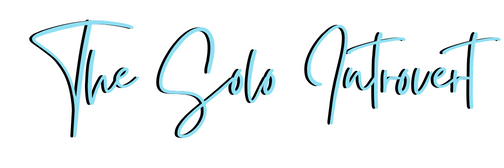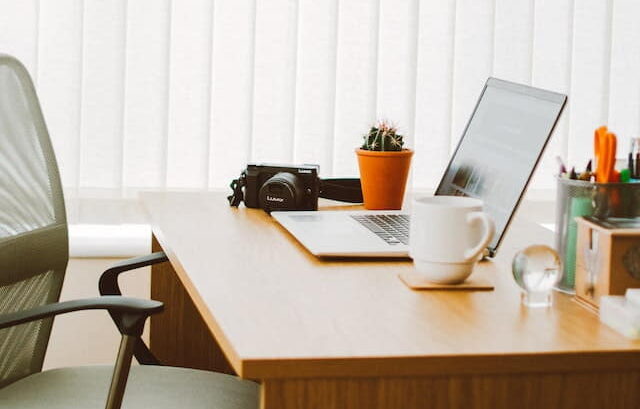The freedom that working from home gives us can also cause a lot of distraction. Whether it’s the allure of our comfy couch, or the massive stack of dishes that need doing: there’s enough that can take our eyes and mind off of work.
In this article we’ll take you through some of the ways that can help you focus on your work, while in your private environment.
Have a dedicated workspace
When everyone had a sudden move to work from home during the pandemic, it wasn’t so easily done to get a dedicated office set up for yourself (and everyone else in the house). However, if working from home has now become a choice for you, you need to invest in a dedicated space.
This doesn’t necessarily have to be a whole office, or even a whole sole purpose table, but it does help. The main rule is that you have a specific area that allows you to focus on your work. You may have an office or a desk, or something you set up in the morning and put away at the end of the work day.
The reason why this makes a difference is because the environment does play a role in your mood and productiveness. It’s with the same reasoning that it’s advised not to have screens in your bedroom, as it breaks the “resting mood” (and other moods…). Call it dedicating a space, building a habit, or making it a ritual to start and end work: it puts you in the right mindset for what you want to achieve.

Limit distractions (OR make your workspace as conducive as you need)
In the same vein as having a dedicated workspace, you’ll want to limit distractions, especially if you’re sensitive to them. While you’re at home, you’re free to do as you please, but working with the tv in full view with your favorite show on probably isn’t going to help you focus. So limit your distractions.
Perhaps you just need to have a clear wall in front of you, some noise canceling headphones and a clean slate. Or maybe you’re in a creative industry and getting input from all your senses is what gets you going. It’s important to understand what you need, what you want, and what gets you going.
This may be dependent on the tasks you need to fulfill, so getting to know yourself and your needs is what will help you most in setting up your workspace in the most beneficial way.
Use focus techniques such as the pomodoro
You’ve probably heard it a million times by now: set a timer to 25 minutes, do your thing, and then reward yourself with a break. There’s two reasons why you keep hearing this: 1 – it does work. 2 – people love a productivity hack.
The truth to the pomodoro technique (named after a tomato shaped egg timer, nothing more) is that it’s intention setting: for the next 25 minutes I will focus purely on this one task. It’s an intentional SMART goal: Specific, Measurable, Achievable, Relevant, and Time-bound. How many more buzzwords can you get in one sentence?
There are additional parts to this technique that also make it similar to other set ups. First of all: you don’t NEED to take a break: if your timer goes and you’re totally in the flow, reset it. The timer is purely to help you focus, the length of time is only a tool to help you achieve.
Timeblocking your tasks is a similar way of being intentional with your time and energy: you set up your day in small time chunks, and at the start of your day you assign each of these to your tasks. You don’t switch tasks in between, you don’t pick up e-mails until your email time block: you are being intentional and focused on one job at a time.
These techniques are a tool to get you in a productive state of mind. The actual tool won’t make the difference, but how you use them will. So pick a tool that suits you: don’t try and suit yourself to a tool, that’s not what they’re made for.

Recognise your needs
Working from home brings a lot of flexibility. If this is paired with flexible working times, use them to your advantage. Not just to pick up the kids from school, but to match with your needs.
It’s inevitable that some days are great, and some days are not. Pushing through when you’re having a bad day can be incredibly counter productive. Check in with yourself to see what you need. Perhaps a walk in the fresh air, a good homecooked meal, or maybe just a nap?
Use the flexibility that homeworking provides to improve not just your work, but also your overall well being. If you are employed, do so within the limits of work, or even discuss it with your line manager if it impacts the work day. If you are self-employed: you are the only boss you need to justify yourself to. And how are you justifying to yourself that you went way beyond your own boundaries?
This doesn’t just apply to breaks, lunch and naps. If you work best in the morning: block out that time and arrange meetings in the afternoon. If you have a lot of catching up to do in Monday morning, communicate that to your colleagues that you will have updates for them later on Monday, or maybe even Tuesday.
Recognise your needs so that you can get the job done efficiently, effectively, and reliably.
Be honest with yourself if working from home works for you
Working from home has been a major liberation for a lot of people, when office working wasn’t just the norm, but pretty much enforced across the majority of jobs.
The freedom and the flexibility that come with working from home are great, but they also bring their downsides. It means a lot more self reliance, less social chit chat, and a great commitment to keeping yourself in check. Not everyone is suited for working from home, just like the open plan office wasn’t suitable for everyone. And there is nothing wrong with that.
Let me repeat that louder for the people in the back: there is nothing wrong with wanting to work in an office.
Dedicated space (away from home), social chat, good/bad coffee. Bouncing ideas of colleagues ore using the meeting rooms to spread out or actually having face to face meetings: not wanting to work from home is not a bad thing.
So be honest with yourself if working from home is working for you. If it isn’t, what do you need? A hybrid approach? A co-working space? Or is it purely that you let yourself get too easily distracted, and the above tips can make a difference?
Being honest with yourself is the only way to find out what really works for you. Checking in regularly to see if things have changed will ensure you do what’s best for the job, and more importantly: yourself.

